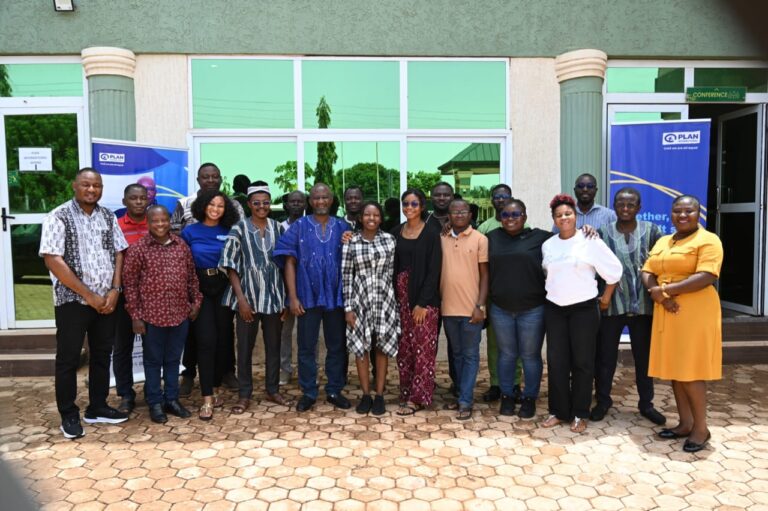|
Getting your Trinity Audio player ready...
|
Plan International Ghana, a development and humanitarian organisation, is contributing to emergency response intervention for refugees in northern Ghana to help ensure decent lives and wellbeing in the camps.
The organisation’s contribution to the response at the camps at Zini and Tarikom communities in the Upper West and Upper East Regions, respectively, is in diverse ways, including reproductive health and rights (SRH) interventions. Mr Eric Ayaba, the Head of Programmes and Influencing for Plan International Ghana, said this in Tamale during a capacity enhancement workshop for journalists and media practitioners in northern Ghana.
Plan International Ghana organised the workshop to expose the participants to its project interventions to enhance their capacities for effective collaboration and appropriate reporting. The three-day workshop culminated in a visit to some project communities of Plan International Ghana, Sagadugu 1 & 2, Mimima and Guabuliga communities, in the North East Region, to among other things, witness the projects’ impact on the communities.
“First we try to do a rapid assessment to determine exactly what some of the challenges that the refugees and host communities’ people are facing …”, Mr Ayaba stated. He added that the NGO also prioritised issues of child protection and safeguarding at the camps and the host communities as the assessment showed that most of the refugees at the camps were children and adolescents. He indicated that the organisation was improving the efforts of District Child Protection Committees and strengthening child protection mechanisms in the communities and camps.
He said Plan International Ghana was also strengthening state agencies to respond to child protection issues within the camps and communities, and ensuring that issues relating to sexual and reproductive health challenges were addressed. Mr Ayaba indicated that the organisation was also working with partners to establish a model adolescent Sexual Reproductive Health (SRH) centre to ensure access to SRH services and information.
In a presentation at the workshop, Mr Amadu Mahama, the Education Outcome Fund (EOF) Lot 4 &5 Manager at Plan International Ghana, mentioned the success of that project in ensuring every child had access to basic education and training. The project was being implemented in eleven districts in three regions in Northern Ghana – six districts in the North East Region, four districts in the Savannah Region, and one district in the Bono East Region.
It targeted out-of-school children from eight to 16 years to be exposed to a nine-month cycle of literacy and numeracy through Complementary Basic Education (CBE) and integrated into the mainstream education. He explained that the EOF Lot 4 & 5 intervention in northern Ghana, had so far reached 21,316 out-of-school children in its third year of implementation, exceeding its target of 20,000 for the four-year period.
Funded and supported by the Ministry of Education, the UK Foreign, Commonwealth and Development Office, World Bank and the EOF, the project was being implemented from 2023 to 2026. Madam Esenam Ahiadorme, the Gender and SRHR Specialist at Plan International Ghana, indicated that the organisation aimed to achieve gender transformation in society through its project interventions.
She encouraged the media to prioritise gender transformation reporting by challenging and changing traditional gender norms, stereotypes and inequalities and promoting gender equality in the media landscape to help dismantle gender barriers.
Source: GNA


